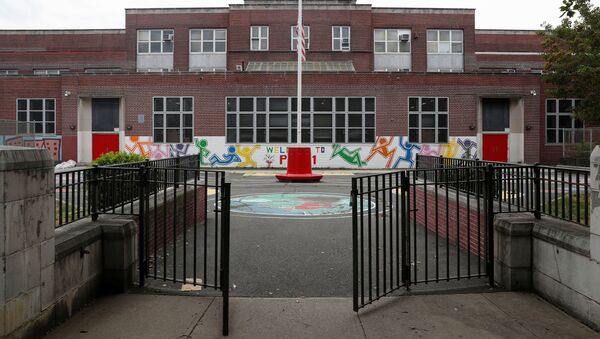“In cities and states that are current hotspots, districts may need to delay reopening for a few weeks. That’s up to the governors," Trump told reporters at the White House.
“All families should be empowered to make the decision that is best for their circumstance," he said.
Trump cited the American Academy of Pediatrics, which has recommended that schools reopen, noting that as schools remain closed, students lose access to mental health services, free lunch services, as well as falling behind in math and reading.
He further noted that 5.6 million parents will be unable to return to work if schools don’t reopen.
However, Trump's plan is firmly opposed by American public opinion. White House coronavirus response coordinator Dr. Deborah Birx said on Wednesday that reopening guidelines from the US Centers for Disease Control and Prevention (CDC) would be forthcoming.
Trump later said he supported giving schools additional funding for COVID-19 tests if they need it in order to reopen.
The day prior, Trump told reporters that he was "comfortable" with the children of his family, including his son Barron, returning to school for the 2020-2021 school year, which in most of the US begins in either late August or early September.
"The country is in very good shape unless you look south and west," Trump said, noting that the center of the outbreak in the US has shifted from New England to the Sunbelt.
However, Trump also noted the outbreak in Florida was severe enough for him to call off the in-person Republican National Convention, which was scheduled for the last weekend of August.
The US has added hundreds of thousands of new cases of COVID-19 in the last few weeks, prompting the rolling back of many reopening schemes. On Wednesday, the US added more than 70,000 new cases and has averaged 66,000 new cases per day over the last week, according to data collected by the CDC.


